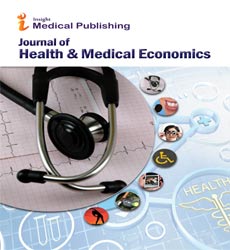Enhancements Informed By the Interdisciplinary Field of Behavioral Economics
Atkinson Desai *
Department of Family, Community, and Rural Health, the Commonwealth Medical College, Scranton, Pennsylvania
- *Corresponding Author:
- Atkinson Desai
Department of Family, Community, and Rural Health, the Commonwealth Medical College, Scranton, Pennsylvania
E-mail: atkinsond@gmail.com
Received date: October 26, 2022, Manuscript No. IPJHME-22-14918; Editor assigned date: October 28, 2022, PreQC No. IPJHME-22-14918(PQ); Reviewed date: November 08, 2022, QC No IPJHME-22-14918; Revised date: November 21, 2022, Manuscript No. IPJHME-22-14918 (R); Published date: November 28, 2022, DOI: 10.36648/2471-9927.8.6.83
Citation: Desai A (2022) Enhancements Informed By the Interdisciplinary Field of Behavioral Economics. J Health Med Econ Vol. 8 No.6:83
Description
Quarantine concerns that have not been brought up since the Apollo era may once again become relevant because these missions also involve a post-reentry phase on Earth for the recovery, transfer, reception, and distribution of samples as well as the handling of returned people and equipment. Post-reentry commercial activities of this kind are governed by a variety of jurisdictions and laws. However, just as it has in other industrial development projects that require social responsibility, public perception will be crucial. This study will investigate the application of environmental economics as a strategy for equitably balancing the benefits and costs of future commercial space endeavors with a backward contamination risk. It will do so by drawing analogies to the siting of noxious facilities and other development cases that have strong environmental justice characteristics. The emergence of New Keynesian Economics in the 1980s in the United States will be the subject of this article, followed by an examination of Keynesian Economics' assumptions and models.
New Keynesian Financial aspects depends on the Keynesian Framework likewise thinks about that when the economy left to itself it will settle at not exactly full-balance in the short-run. The majority of New Keynesian economists accept the rational expectations hypothesis, but they reject perfect competition and price and wage elasticity. As a result, Keynesian lack of effective demand and market coordination failure will result from imperfect competition as well as wage and price rigidity. Except for a few New Keynesian economists who employ Hysteresis and Efficiency Wage models, they adhere to the Neo-Keynesian economists' long-term prediction that the economy will eventually reach automatic Natural-Rate-of-Unemployment (NRU) equilibrium. Causal Economics, a brand-new pluralist framework for behavioral economics that makes it possible to deeply incorporate psychological drivers at a level that is not possible in existing models, is presented in this paper. This article adds to the body of knowledge on how research evaluation affects diversity preservation and reproduction. We show how candidates for academic positions, particularly top-tier positions, are forced to increasingly conform to a standardised research profile through a large-scale natural experiment involving two entire Italian economist cohorts. Gender bias is evident in research evaluation, and candidates' chances of qualifying for an academic position vary significantly depending on their primary fields, research topics, and methods. Independent of their bibliometric indicators, our findings also indicate that economists employing heterodox methods and/or working in less well-known research fields are less likely to be considered for top-tier academic positions.
Diversity Preservation
People are deprived of the essential means to lead a good, content, and just life because they do not have sufficient access to energy services that are affordable, safe, and dependable. This issue is becoming increasingly serious in urban areas, particularly in low-income neighborhoods where social segregation and distributional inequalities are reflected by residents' inability to pay for energy. Strategies to combat energy poverty include making cleaner technologies accessible to all homes and providing financial assistance. But it's also important to know how people make decisions every day that affect how much energy they use. Particularly in situations characterized by scarcity, an in-depth investigation of the underlying mechanisms that drive decisions is required. People's cognitive resources are depleted when they live in a time of scarcity, making their decisions more susceptible to cognitive biases. For instance, situations of scarcity cause people to prefer smaller rewards that can be received right away to larger rewards that can be earned over time. However, studies indicate that allowing individuals to build community trust can mitigate this. In order to (i) examine certain cognitive biases that may arise in energy poverty contexts and (ii) devise strategies to unlock individuals' potential to make decisions that result in better outcomes for themselves and their surroundings, this study draws on recent behavioral sciences findings regarding the role that scarcity conditions have on decision-making.
Control Design
Parent involvement is essential to the success of early childhood interventions that aim to reduce socioeconomic disparities. However, it has historically been difficult to engage parents and keep them engaged throughout interventions. In order to encourage parent participation in the Head Start preschool school readiness program Getting Ready for School, we developed program enhancements based on behavioral economics. It is hypothesized that the behavioral economics enhancements will address psychological factors like attention, misinformation, and related parent biases about children's learning that may hinder parents' decision-making. A randomized control design in four Head Start centers found that families who received behavioral economics-enhanced strategies, such as personalized invitations, child-friendly activity planners, text-message reminders, and commitment reinforcement, had higher parent attendance and follow-through for GRS activities and spent more time with their children participating in educational activities outside of the classroom. This was in comparison to families who received the standard curriculum.
Open Access Journals
- Aquaculture & Veterinary Science
- Chemistry & Chemical Sciences
- Clinical Sciences
- Engineering
- General Science
- Genetics & Molecular Biology
- Health Care & Nursing
- Immunology & Microbiology
- Materials Science
- Mathematics & Physics
- Medical Sciences
- Neurology & Psychiatry
- Oncology & Cancer Science
- Pharmaceutical Sciences
